From The Chair
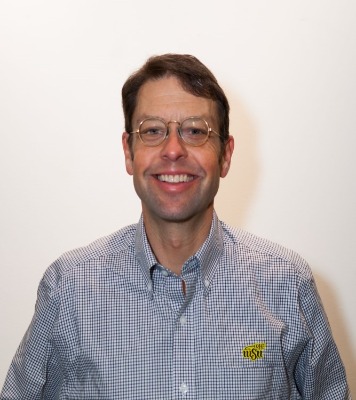
Greetings from a new and improved Fiske Hall! In early January just before the start of spring semester of 2019, we packed up our offices and moved back across 17th Street back to Fiske. It took the better part of the spring to unpack. The Provost’s Office contributed to in-stalling an image of Fiske Hall’s interior in 1912 along one wall of the downstairs lounge. In May, History and Philosophy hosted a rededication ceremony to bring back faculty, staff, alums, and supporters. It is good to be home.
This fall, the department begins the academic year back home and with two new faculty members. Laila Ballout is our new Americanist who brings to the department an interest in foreign policy, mod-ern American politics and digital humanities. Look for her new course on the U.S. and the Middle East.
The department also includes a whole new area: Religion. Once connected with Women’s Studies, the Religion Program became part of History in the summer. The program of one consists of Rannfrid Thelle who brings with her a passion for Biblical scholarship, especially how our understanding of the Old Testament intersects with modern realities and dynamics in the Middle East. The program also includes a new emeritus faculty, Stuart Lasine, who brings his own insights and efforts in the study of religious literature. Like Geography, Religion is its own program with its own minor. However, faculty will otherwise function as a part of the activities of the Department of History.
New Faculty: Drs. Rannfrid Thelle and Laila Ballout
This past year has seen the Department of History grow as two new faculty members joined our ranks: Dr. Rannfrid Thelle and Dr. Laila Ballout. Dr. Thelle came to us from a different department at WSU and Dr. Ballout is new to the university—we are very excited to have both of them in the fold. Here are short introductions from them both:
Dr. Rannfrid Thelle
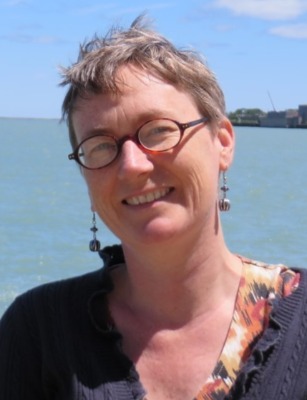
Rannfrid I. Thelle transferred to the History Department in the summer of 2019. The Religion program had been housed with Women’s Studies since the early 1990s, but this was the right time for a change, and she is very happy to join the Department, now back in Fiske Hall.
Dr. Thelle teaches Religion classes, including Old and New Testament Introductory courses and a third, topical course, every semester. In the Fall of 2019 students were offered Archaeology and the Bible, and in Spring 2020 they can take Women and the Bible. Auditors are always welcome!
Rannfrid’s research is in the discipline of Old Testament/ Hebrew Bible. She publishes on the Prophetic literature of the Bible and on divination and prophecy in ancient Israel; on feminist and narrative approaches to biblical texts, for example an exploration of the “Song of Deborah” in Judges 5; on questions of heritage management and the political and ethical contexts of historiography; and she is engaged in research in the interface of Mesopotamian and biblical studies. Her book Discovering Babylon (2018), written for non-specialists, charts the history of Babylon through the Bible and cultural history, and how its excavation in the early twentieth century impacted the understanding of Babylon. Presenting this book has taken her around to different venues, in San Francisco, Tucson, Richmond, VA, and, of course, Wichita.
Dr. Laila Ballout
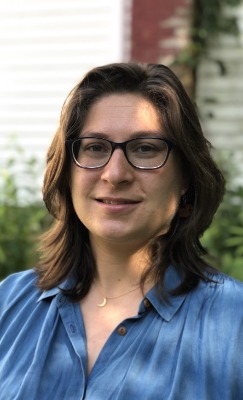
Born in Wichita, but raised in the Northeast, Dr. Laila Ballout received her B.A. from the University of New Hampshire and received her M.A. and Ph.D. from North-western University in Evanston, Illinois in 2017. For the past four years she has lived in New England teaching at Phillips Andover while completing her dissertation. Destined to jump back and forth from the Midwest and the Northeast, Dr. Ballout is glad to be back in the time zone of her birth. That reclaimed hour makes all the difference.
A historian of the twentieth century U.S., Dr. Ballout specializes in U.S. foreign relations and has expertise in the history of the Modern Middle East. She is currently devel-oping her manuscript Saving Lebanon: Diaspora, Religion, and Advocacy for U.S. Intervention during the Lebanese Civil War, 1975-1990. This work investigates how citizen activists, rooted in diaspora and religious networks, ap-pealed for American support during the war and built enduring narratives that continue to influence American engagement with the Middle East.
At WSU, she looks forward to developing courses to that draw from her specialties in late 20th century U.S. history. Look out for courses examining U.S. foreign relations, humanitarian interventions, and the Middle East. Her courses will contribute to the Local and Community history pro-gram by encouraging students to examine the global dimensions of local history, and will add digital humanities methods to both undergraduate and graduate programming.
The Local Is Where History Happens: The Local and Community History Program
Our Local and Community History Program has several related of distinct facets. The cornerstone the track in Local and Community History as part of our graduate program. Many students in this program, however, also take courses that lead to supporting certificate programs such as Museum Studies, Public Administration and, once the paperwork is complete, GIS. Another facet of the program includes the Certificate Program in Great Plains Studies. A range of internships and other projects also support real world applied learning. Students in the program include traditional graduate students, senior auditors, and members of the Society of Public Historians (SPH). For example, our current SPH president, Josh Mackey is a student docent at the Pizza Hut Museum while senior auditor Dee Starkey is SPH secretary while also being an in-demand docent at the Henry J. Allen House. Both Mackey and Starkey were part of a class project in museum methods that did an exhibit on the oil industry in Valley Center. The instructor was none other than Dee Harris, an alum who now works for the National Archives. Local and Community History students are engaged in the community, regularly teaching classes in adult education as well as conducting neighborhood tours.
The range of topics our students pursue is really striking. Among the topics they are exploring are a study the Tulsa Race Massacre of 1921, beards and Populist imagery, the current wind farm debate, urban native American families in Wichita in the twentieth century, a study of Henry J. Allen, the planting of Missouri Synod Lutheran congregations in the 1950s, the history of the Kansas Sports Hall of Fame, ethnic minorities in El Dorado, and the community of Chelsea…among many others.
Our alums have gone on to do historic preservation projects, teach at a range of levels, work for libraries and museums. Some work for state and local government. Others are the private sector such as with banks or title companies. Some are local advocates for the stewardship of historic sites. Some, such as have even come back to help teach classes at WSU. Folks who want to know “what you can do with a history degree” are welcome to talk with our alums about the different opportunities out there…although getting through all the different opportunities may take a while!
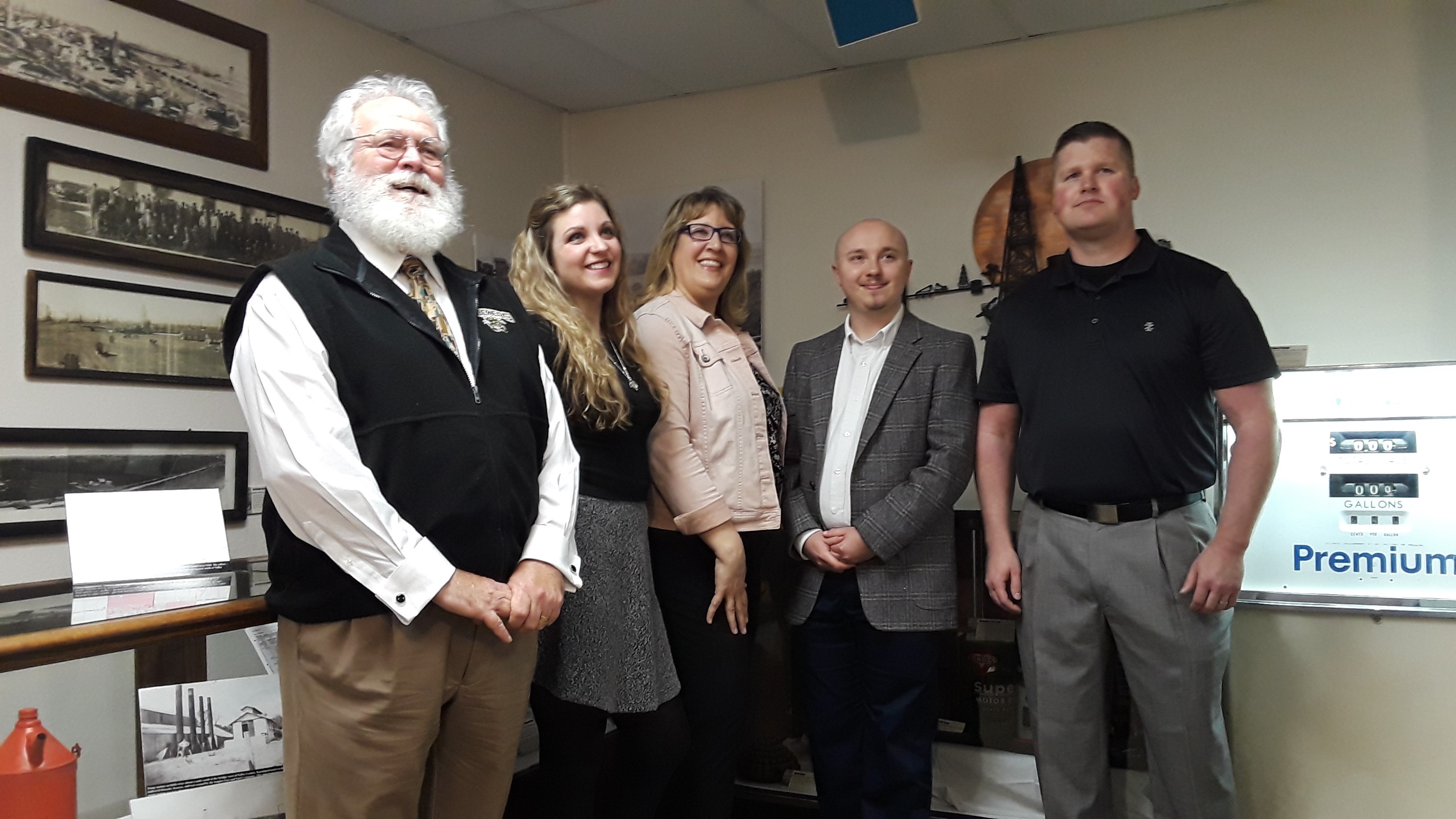
Fiske Bricks!
In 2015, the Department of History began honoring the winners of the Ard Faculty Award with Fiske Bricks — original bricks from Fiske Hall which were salvaged from the building in the process of constructing the new elevator. These bricks speak to the strong foundations which our teachers hope to give our students through our classes, and which the study of the past gives to all students, young and old.
The 2018-2019 Fiske Brick was given to Dr. Jeff Hayton who joined us in 2014 and has been an important contributor to our course offerings, research output and departmental merriment ... and not to mention Clio!—congratulations Jeff!
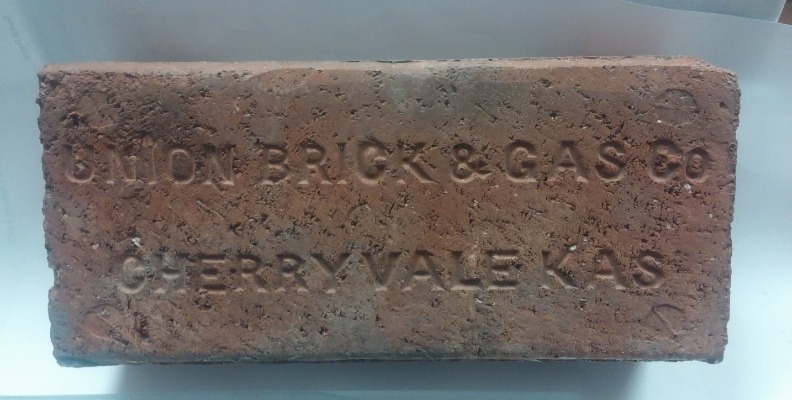
Faculty News
2018-19 was an unusual year for George Dehner. Fall brought the normal allotment of students, classes, and committee work, but in the Spring, George was on sabbatical. The first month or so was spent on re-working his book chapter “Creating the World Influenza Surveillance System” whose publication has been pushed back to 2020. After submitting the expanded chapter, George has been at work on the first draft of his Legionnaires’ disease manuscript. The focused time afforded by the sabbatical has been a boon for writing the book and the project continues apace. February marked the publication of his article “Environmental History and World History: Developments in Congruence” which appeared in the Asian Review of World Histories. George was part of the committee that has hired the director for the new Latin X cluster and has been actively engaged in speaking to local groups about influenza, vaccination, and public health. He and his wife Jodi have two boys in high school (Patrick and Sean) and their oldest is a proud Shocker (Brendan). Their dog Trooper remains unlettered and unschooled, however. The return of the fall semester has brought the full slate of University work, time spent in the bleachers at soccer matches, and full days, nights, and weekends.
Modern Europeanist John Dreifort continues to teach his full range of freshman, upper division, and graduate-level courses. As part of the department’s community outreach, he continues to teach over-subscribed adult education courses to senior citizens, who he appreciates for their enthusiasm and dedication to life-long learning. He continues as Executive Secretary of the Wichita Committee on Foreign Relations, which brings a wide array of nationally prominent speakers to Wichita as well as to campus to speak on issues of foreign policy and national security. He also serves on the national executive council of the local committee’s national affiliate organization. On campus he continues to serve on various committees, including an ongoing university strategic planning task force. He continues work on his book project related to the relationship between Generals Eisenhower and De Gaulle during World War II, as well as several articles. He enjoys hearing from his many former students and to learn how their history courses have helped them live their lives well.
The past year has seen Jeff Hayton reach several important milestones. He had another book chapter published, an essay called “Punk Authenticity: Difference across the Iron Curtain” which appeared in an edited volume by Joachim Häberlen, Mark Keck-Szajbel and Kate Mahoney entitled The Politics of Authenticity: Counterculture and Radical Movements across the Iron Curtain, 1968-1989 (Berghahn, 2018). This chapter and book stemmed from a very fruitful conference held in Frankfurt an der Oder in eastern Germany in 2016 (we even took a boat cruise down the Oder river; that’s how you throw a conference). Right now he is working on a chapter for the handbook Musicking in Twentieth-Century Europe, edited by Klaus Nathaus and Martin Rempe that will appear next year from De Gruyter. All the authors (18 of them!) gathered this summer at the press headquarters in Berlin to share a few days discussing the scope of the handbook which will act as an introduction to musical practices across Europe in the past century. His chapter focuses on the relationships between popular music and protest and he hopes to be finished soon (or else the editors are going to be even more upset).
But the big news is that his book Culture from the Slums: Punk Rock in East and West Germany is scheduled to appear with Oxford University Press in 2020. After years of working on proposals, revisions and edits, he finally signed the contract this fall. The next few months will be spent tinkering with the text, securing image and song copyrights, and making sure there are no typos in the draft manuscript. This moment has been a long time coming and he couldn’t be happier that it is coming out with one of the most prestigious academic presses in the world.
Finishing one project though can only mean one thing: starting a new one! This summer Jeff spent several months in Germany visiting archives and libraries to identify sources for several new projects which he is beginning to start work on. The first is an investigation of the rise of Neo-Nazism in West Germany since the 1970s, while the second looks at the relationships between video games and the historical imaginary. Jeff isn’t quite sure where these projects are going to lead him just yet, but anything dealing with Germany and popular culture is bound to interest him. And he has just started planning with two colleagues at different institutions a conference and an edited book that will explore daily life in East Germany during the 1970s and 1980s.
In the past year, he also found time to speak to a few audiences. In December 2018, he was in Boston for the annual convention for the Association for Slavic, East European and Eurasian Studies where he gave a talk about Dieter ‘Otze’ Ehrlich, a fascinating young man: ‘Otze’ was the singer of the legendary East German punk band Schleim-Keim which secretly released music in the West while at the same time, he al-so worked for the Stasi, East Germany’s secret police. In June 2019, he was in Berlin presenting on popular music and protest. In October 2019, he was one of the featured speakers at a banquet of the annual German Studies Association convention where he talked about his upcoming book. And in November 2019, he spoke to the Wichita public at the Museum of World Treasures about the 30th-anniversary of the fall of the Berlin Wall (the museum has a section).
He has also begun to take on a more organizational role within his field: in 2018, he was named Co-Director of the Music and Sound Studies Network for the German Studies Association. As one of the directors, he is responsible for putting together a series of panels for the annual conference. In this capacity, he is getting to know lots of great scholars from around the world and is looking forward to working with them during his tenure.
This kind of administration seems to be a reoccurring nightmare for him because he has also spent considerable time back at WSU on several committees related to shared university governance. Sometimes he forgets that he also has a day job where he has to teach students European history.
All this activity has left Jeff a little bit tired (where’s that sabbatical?!) but it was all worth it when he was presented with the Ard Faculty Award by the History Department in spring 2019—knowing you col-leagues think you are doing a good job is a wonderful feeling and he is very appreciative of his co-workers.
During 2018-2019, Dr. Robin Henry had essays published in the Journal of the History of Sexuality, the Montana Magazine of History, the Magazine of the Western History Association, and The American Historian, a publication of the Organization of American Historians. In addition, she contributed a chap-ter titled, “Can We Teach US History without Ludlow?” for a forthcoming collection on the impact of the Colorado Coal Wars (1913-14) and the Ludlow Massacre (1914) on US history and memory from the University of Colorado Press. She is also working on two book manuscripts, some of which she presented at the annual conferences of the Western History Association in both 2018 and 2019, and will present at the upcoming meeting of the Social Science History Association in November 2019. Finally, she began work on a primary document and digital history LGBTQAI+ legal resource reader for Oxford University Press.
In addition to her research, Dr. Henry serves as Graduate Program Coordinator and organizes the lecture series for the Department of History. She continues teaching courses for the Law and Public Pol-icy consortium and serving as a Faculty Fellow, both in the Bill and Dorothy Cohen Honors College. Finally, she continues to serve on the Editorial Board of H-SHGAPE, the online listserve for the Society of Historians of the Gilded Age and Progressive Era; write and deliver historical commentary for the series “Past and Present” on KMUW; is participating on an upcoming panel “Feminist Voices from the Vault,” for the Ulrich Museum of Art in November; and is currently devel-oping content and events for a year-long retrospective of the centennial of the 19th Amendment for KMUW.
Dr. Robert M. Owens taught a number of courses in the past year, including the Introduction to Research and Writing, Historiography, Revolutionary America, The Early Republic, and the first half of the U.S. Survey. He spent most of the summer writing for his project on the topic of Indian-white murders on the early American Frontier. He also spent a very productive week doing research in the Wisconsin Historical Society’s Library at the University of Wisconsin-Madison, reading from the famous Draper Manuscript collection.
Now in the middle of his third term as chair, Jay Price found himself active in several initiatives including the completion of the Fiske renovation and the move back to Fiske Hall. To conclude that effort, Price and Philosophy chair Jeff Hershfield took turns reading the amusingly flowery dedication poem from 1906 at the rededication event. During the summer, he worked on the details of having the Religion Program join the department.
His scholarship efforts over the past year have continued to develop his interest in region and religion. Among them is a chapter on the Midwest and the Bible Belt in the newly released book The Interior Borderlands. His article “Assembling a Buckle of the Bible Belt: From Enclave to Powerhouse,” from Kansas History received the Arrington-Prucha Prize from the Western History Association for the best article on American western religious history.
Another area of scholarship has been the study of local entrepreneurship. He continues to work, for ex- ample, with Robert Weems in History and Sue Abdinnour in Business on a study of ethnic entrepreneurship. Moreover, his collaborative work on the Pizza Hut Museum has resulted in participating in several panels on museums and accessibility at regional museum conferences.
Now, Price joins Enrique Navarro in the Spanish Department to develop a pop up exhibit and collecting program about the local Latino community called Somos de Wichita/We Are Wichita. This program will collect photos and stories from the local community and present it in a bilingual exhibit to appear across the city that will tell the stories of how Latino families in Wichita navigated issues of ethnicity and culture.
As an offshoot of this, Price has also taken the leap to take an online Introduction to Spanish class. Ahora es un profesor y un estudiante también! In addition to gaining a greater grounding in Spanish as he works more with the Latino community, he is also taking this online class to become better familiar with online learning as he gets ready to convert some of his classes into this format. Nos vemos!
Craig L. Torbenson continues to serve as the department’s undergraduate advisor, his fifteenth year. He teaches a world and human geography course every semester, either one of which all education majors have to take. He also rotates a couple of regional geography courses along with a family history course. He and his wife are co-Directors of the Derby Kansas Family History Center. He is nearing completion of a five-year supplement to Tornado Magic: A History of Anoka High School Sports, published in 2013. After suffering several hamstring pulls two years ago, he took a hiatus from running and focused on muscle strengthening and returned to running this spring.
Since the last edition of Clio, Robert Weems’ primary activities were linked with being on sabbatical leave from January-May, 2019.
I had originally planned, during my sabbatical, to focus upon doing preliminary research on my next book project, a history of the National Insurance Association (NIA). This organization, originally named the National Negro Insurance Association, was the trade association of African American-owned insurance companies in the United States.
Shortly before my sabbatical began, I was notified by the University of Illinois Press that they had received very positive outside readers’ reports related to my biography of Anthony Overton (a prominent early twentieth century black businessman). These reports included suggestions for revisions. Based upon the fact that I have been working on the Overton project since 2009, I shifted my sabbatical priorities to focus upon completing the revisions to the Overton manuscript (along with such subsequent related tasks as examining the copy-edited version of revised Overton manuscript and examining page proofs).
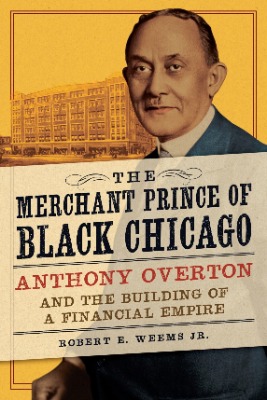
There is an interesting back-story related to the forthcoming book The Merchant Prince of Black Chicago: Anthony Overton and the Building of a Financial Empire (which is scheduled to be released in early 2020). Years ago, as a beginning Assistant Professor, I attended a lecture by the eminent historian John Hope Franklin where he discussed what constitutes, from his perspective, a complete research/publication career. Dr. Franklin asserted that a historian needs to: 1. produce a monograph; 2. produce an edited work; and 3. produce a biography. Having completed this “trilogy,” I feel more professionally “fulfilled.”
While I put the National Insurance Association preliminary research on the proverbial “back burner” during much of my sabbatical leave, I did not abandon this project. I did make a research trip to the Amistad Research Center (at Tulane University), where I began examining their collection of NIA records.
Another professionally “fulfilling” activity I engaged in since the last issue of Clio was appearing in the documentary Boss: The Black Experience in Business which premiered on PBS this past April. Being in a documentary has long been on my “bucket list” as a historian. I also had the honor of being asked to serve as a historical consultant for this well-received project.
In 2019 I received another important distinction linked with my long-standing scholarly productivity. The Marquis Who’s Who company (the publisher of Who’s Who In America) awarded me an “Alfred Nelson Marquis Lifetime Achievement Award” described as “an honor reserved for Marquis Biographees who have achieved career longevity and demonstrated unwavering excellence in their chosen fields.” Needless to say, I’m both honored and humbled to receive this recognition.
Finally, in the realm of combining work with pleasure, my community service activities include membership on the Board of Directors of the Heartland Wichita Black Chamber of Commerce (HWBCC). On September 7, 2019, the HWBCC hosted a football game at Cessna Stadium featuring Langston University (a historically black college and university) versus McPherson College. The halftime activities included the induction of Coach Willie Jef-fries into the “Wichita Black Business Hall of Fame.” Coach Jeffries is a truly historic figure in that, when he agreed to become Wichita State’s head football coach in 1979, Jeffries became the first African American head football coach at a Division 1A predominantly white institution. As the person who coordinates the HWBCC’s “Wichita Black Business Hall of Fame” initiative, I had the honor of officially announcing Coach Jeffries induction. I also had the pleasure of spending some quality time with this very delightful individual.
Speaker Series
The Department of History’s Speaker Series entered its seventh year in 2019. In the spring, Dr. Shawn Leigh Alexander, Professor of African and African American Studies and Director of the Langston Hughes Center at the University of Kansas, spoke on radicalism in the African American Civil Rights Movement in a talk titled, “Fantastic Dreams and Radical Visions: The NAACP and the Foundation of a Movement.” In the fall, the Department of History welcomed Dr. John Reda from the Department of History at Illinois State University. His talk, “Imperial Illusions: de Bourgmont and the French in 18th Century America,” examined relationships between North American French settlements and Native Americans. For further information on upcoming lectures, please contact Dr. Robin Henry via email at robin.henry@wichita.edu. All lectures are free and open to the public.
Fairmount Folio
The Department of History’s publication of student writing, The Fairmount Folio, published volume 19 in the spring of 2019. Dr. Robert Owens served on the Editorial Board. This volume presents a wide chronological swath of American history. From Amanda Underwood’s article on eighteenth century witchcraft “Witchcraft in the American Colonies Beyond the Limits of Salem” to Josh Mackey’s investigation of the local responses to the Tulsa race riots of 1921 in his “Breaking a Century of Silence. A Historiography of the Tulsa Race Riots” these articles inform even those who have knowledge of the topics. Rhenne Swink also brings colonial America to the fore in her work on “Gender and Division of Labor Associated with Dying, Burial, and Mourning in Early America.” Logan Daugherty’s “The Crusade Against the Whisker” and the Birth of the Modern Radical Beard” illuminates the role of a Kansas politician in the then touchy subject of beards. Erik Ferguson, analyzed the role of personal relationships and Cherokee politics in his “Ross and Watie: The Relationship and Influence of Cherokee Chiefs, from Removal to the Civil War.”
Volume 20 will appear in the spring of 2020.
In addition to the hard copies, the journal is now available electronically through the library and through the department web site. All of the articles, from volume 1 in 1996 to the present are available.
HOW TO FIND: Beginning at the main page of Ablah Library, under Library Resources, go to OJS-Hosted WSU Journals. The Fairmount Folio is available here. You may search for the work of an individual author, topic, or volume. The site is easily accessible.
Alumni News
Eva Misty Bernal (BA, 2009) is currently living in Utah but is leaving in November for China. She has accepted a teaching position there and is looking forward to a few new adventures. She is still writing and also spends time rescuing and rehabbing wildlife, particularly raccoons.
Chase A. Casteel graduated from Wichita State in 2012 with a BA in History and a minor in Political Science. He went on to complete an MSE at Fort Hays State University in 2014. He is currently teaching high school social studies at Flint Hills High School in Rosalia, KS. He also serves as the USD 492 Rosalia-Flint Hills District Technology Director. He was nominated by his district to compete as a Kansas Teacher of the Year 2020 candidate.
After a 46-year career in education Richard Cooley (MA in History) retired from his position as full professor in the History Department at Grand Valley State University. He taught for four years as a 7th grade Social Studies teacher in Upstate New York, 24 years at Circle High School in Towanda, Kansas, and the last 18 years at GVSU. He is writing an oral history based on the careers of 28 of my former students from GVSU. He has compiled over 1,000 pages of field notes, 50 hours of video and all of this research will be posted on the GVSU Digital Archives within the GVSU Library. He also hopes to publish a book based on this research. He and his wife plan to travel, potentially volunteer for Habitat for Humanity and enjoy time with their family.
Michael Dandurand (BA 1971) is a pharmacist and founder of Dandurand Pharmacy. In addition to serving over twenty years in the US Army Reserves and being active in numerous professional organizations in Kansas, one constant throughout his life has been his love of history.
Kathleen Epps Hankins (BA, 1967) is an active member in a variety of ways at Hillside Christian Church. She researches family history. She retains memberships in Alpha Chi Omega Sorority Alumnae, the Junior League of Wichita Sustainers (incl. Wit & Wisdom), & the local Historic Preservation Alliance.
Tony Lubbers, (BA, 1993, MA, 1998), is currently serving as the Director of Financial Aid at the University of Central Missouri. He previously served as the Director of Financial Aid, and earlier, Assistant Director of Financial Aid at Friends University. He is married with two kids and five grandkids. He is a former Adjunct Faculty member at Butler Community College, Baker University, and Friends University. Most of his teaching was done on survey courses (U.S. History 1 and 2, Western Civ 1 and 2), but he taught some interesting elective courses (History of the American Presidency, The Great Depression and World War Two, and The JFK Assassination among others). He is also a former President of the Kansas Association of Student Financial Aid Administrators (KASFAA).
Brady G Simmons (BA, 2004) was recently named church historian for the Haysville United Methodist Church and is responsible for monthly articles in the church newsletter. Currently working on preserving the memory and stories of the church for future generations.
Ralph Sinnett (BA, 2006) is a firm believer that educating oneself is a means to enlightenment. Already possessing a Communications Degree (1979) from WSU and pursuing a Masters in Quality Management at Friends University in 1996, there was something still lacking in his writing capability. Completing his History Degree in 2006 as an older adult gave him a giant leap towards his desire to write. Upon retirement from Boeing in 2013 after 31 years, his opportunity to have the time to write books in several genres was made possible. Now, having published one children's book and nearing completion of two much larger efforts in Science Fiction, the reality of putting his dreams onto paper is truly available to me. Without the tools offered to him by the intense writing requirements for a History degree, he would not have had the ability to provide a sense to the realities that he could create and share with others.
Keith Wondra (BA, 2011; MA, 2014), has been an assistant curator at Old Cowtown Museum since the fall of 2015. He is also the author of several Wichita and Kansas history books including Botanica, The Wichita Gardens, From the Land of Andalusia to the Wheat Fields of Kansas: A History of Wichita’s Historic Orpheum Theatre, Kansas: In the Heart of Tornado Alley, Old Cowtown Museum, and “Where the Old West Comes to Life”: The Story of Old Cowtown Museum.
Attention Alums:
Update us on your news! Please email Laila Ballout at laila.ballout@wichita.edu with all your updates. More over, be sure to check out the "alumni" link on our web page: http://history.wichita.edu and please let us know if it is okay for us to inclued your activites on that page!
In Memoriam
Arther Ferrill passed away in June 2019 due to surgery complications.
Darrell L. Leiker died October 4, 2018, from a rare form of cancer caused by exposure to Agent Orange in Viet Nam in 1969.
Student Awards 2018-2019
Thanks to the generosity of the department’s friends, fourteen different awards and grants were distributed to our graduate and undergraduate students for their hard work in the previous year. Congratulations to all our students and many thanks from the history department for the kind support of our benefactors. The awards for 2018-19 include:
For our Undergraduate Paper Awards, we had two winners. Gabriella Garrett won the Bendell Award for her essay “Women Abolitionist: Radical in their beliefs and for their gender”. Meanwhile, Jessica Tung won the Rydjord Jr. Award for her paper “Music in Renaissance Italy”. We also had two winners for our Graduate Paper Awards. Joshua Mackey won the Fiske Non-Seminar Award for his essay “Breaking a Century of Silence: A Historiography of the Tulsa Race Riot” while Rhenee Clark-Swink won the Phi Alpha Theata Kind Shepard Award for “Gender and Division of Labor Associated with Dying, Burial and Mourning in Early America”.
The History Department is also fortunate to distribute awards and scholarships to a number of undergraduate and graduate students. Tayton Majors won the Lee and Helen Kamen Scholarship which rewards the top Sophomore history major. Julianne Ferguson once again took home the Donna and Bill Ard Scholarship while Brett Fearer showed that last year was not a fluke as he scored the ‘Jed’ Hurley Scholarship. Brooke Talbott continued her strong work at WSU by garnering the Dr. Henry and Minnie Onsgard Award and Mackenzie Evans re-upped with the Decker-Kansas Society of DAR Grant. Kay Doubrava successfully received the Russel ‘Jiggs’ Nelson Scholarship while McKenna Paintin was bestowed with the Marie Graham Memorial Award. Finally, Damon Penner snagged the Suellentrop Family Scholarship for his excellent work.
The graduate scholarships this past year saw a fierce competition. Leah Gagne once again received the Anthony and Dana Gythiel Scholarship for her continued strong work. And Hayley Lyda was honored with the John Rydjord Graduate Fellowship.
Congratulations to all our students who won awards this year, and many thanks to those who have contributed to supporting our students over the years: without your generosity, our largesse would not be possible.
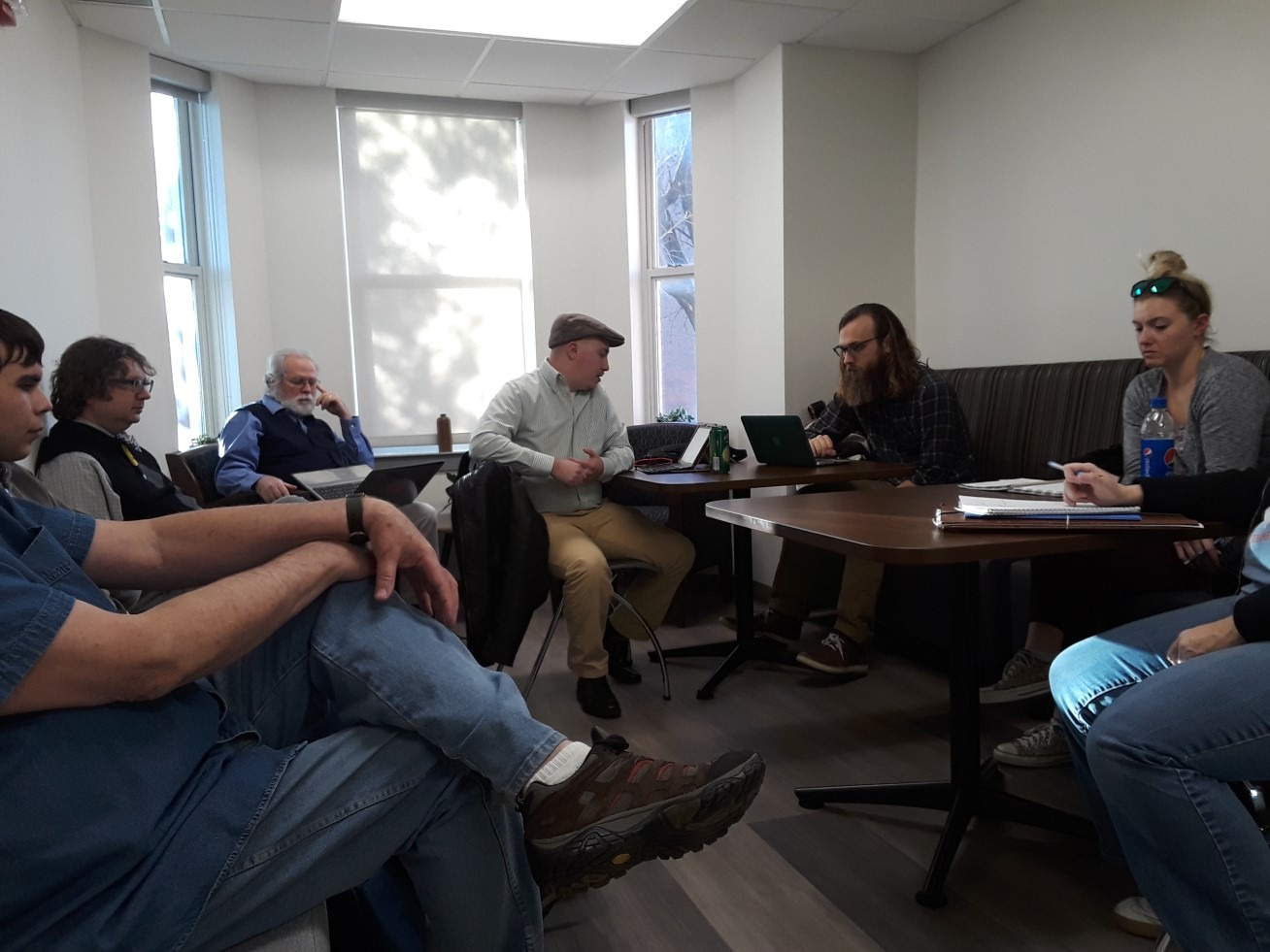
Fiske Hall Rededication
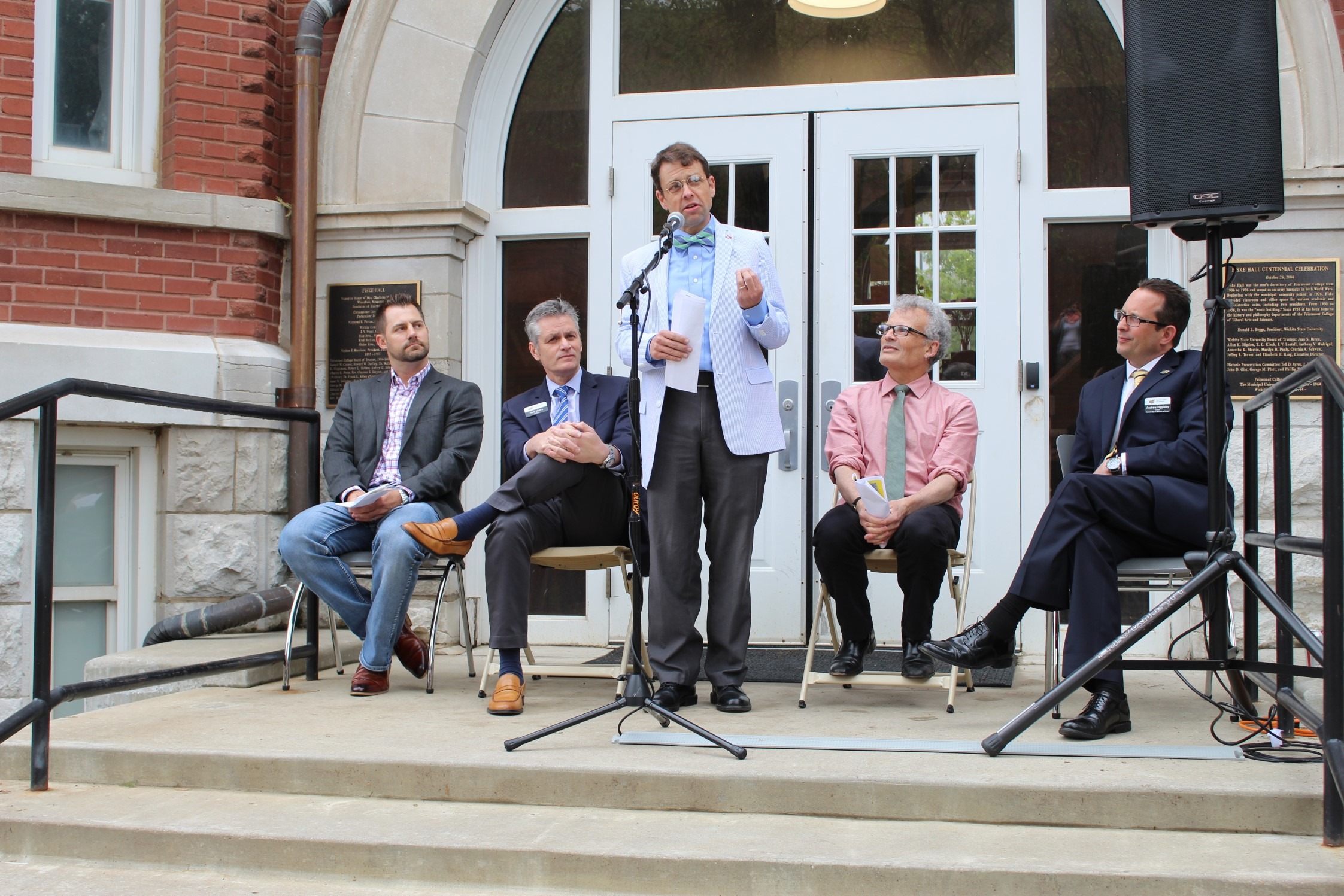
At the end of the Spring 2016, the faculty in the Department of History carefully packed their books into boxes in preparation for moving to Brennan Hall II. Originally opened in 1906 as a men’s dorm, and after nearly a century of use, Fiske Hall was getting some work done. At first, a new elevator was being integrated into the building to make it ADA compliant. But once the walls were opened, new issues were discovered (termites!) and what was at first intended as a few short months’ vacation turned into years away from our home in Fiske.
The long wait to return was finally over in January 2019 when the Departments of History and Philosophy were able to move back into the newly renovated Fiske Hall. Gone were the broken floor tiles, leaky roofs and tired paint. Inside were new offices, new classrooms and a new elevator.
On May 3, 2019, the departments held a rededication ceremony to celebrate both the past and future of Fiske Hall. In front of a large crowd of students, faculty, staff and alumni gathered around the front steps, several speakers reminisced about the building and what it meant to them. Provost Rick Muma shared with everyone that his grandmother worked in Fiske Hall as the secretary for the Philosophy Department and when he would visit her as a kid in the summers, he would spend time in Fiske Hall. History and Philosophy Chairs Jay Price and Jeff Hershfield jointly read the original 1906 dedication poem complete with flourishes and embellishments. And lead architect Jeff Minar from Alloy Architecture explained some of the challenges involved in renewing the old building.
After the speeches were over it was time for some cake. And now, it’s time to make some new memories.

